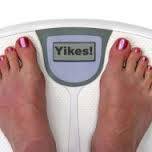 Hey, did you know that Jennifer Lopez, Star Jones, Melissa McCarthy and Kate Hudson used Garcinia Cambogia to shed massive weight? It’s detailed right here at an Internet news site. And Adele, along with Victoria Beckham, relied upon Raspberry Ketone. Same with Christina Aquilera, claims Weekly US. But none of these claims are true…..not in the slightest. In fact, the Weekly US site, itself, is a fake! The sad fact is that most all of the Internet advertisements you see touting celebrity stories of diet pill weight-loss are pure fiction. Often times you’ll see these ads on Facebook, Tumblr or other reputable websites….but they are still not true. And all those detox and cleanses? Please, don’t get us started — they are most all bunk.
Hey, did you know that Jennifer Lopez, Star Jones, Melissa McCarthy and Kate Hudson used Garcinia Cambogia to shed massive weight? It’s detailed right here at an Internet news site. And Adele, along with Victoria Beckham, relied upon Raspberry Ketone. Same with Christina Aquilera, claims Weekly US. But none of these claims are true…..not in the slightest. In fact, the Weekly US site, itself, is a fake! The sad fact is that most all of the Internet advertisements you see touting celebrity stories of diet pill weight-loss are pure fiction. Often times you’ll see these ads on Facebook, Tumblr or other reputable websites….but they are still not true. And all those detox and cleanses? Please, don’t get us started — they are most all bunk.
More than two-thirds of Americans are either overweight or obese, and scammers hope to profit from the desperation many of us feel to lose weight. And it’s not just the fake ads; the Federal Trade Commission (FTC) warns that a some companies are now peddling fraudulent weight loss products through hacked email addresses, to convince consumers that the products were endorsed by friends or family members. (more about that below)
Weight loss scams are nothing new. In fact, the FTC has been prosecuting false diet claims since 1927. However, the Internet has greatly accelerated the speed and impact of scammer successes by gaining access to wide audiences and making it easy for them to reap large profits. This blog spends quite a bit of time exposing some of the worst offenders, but we’ve only scratched the surface. Regulators have the same problem; since 2005, the FTC has brought 82 cases against scammers for using false or unsubstantiated claims about weight-loss products, and yet they continue to proliferate. We can try to help protect you, but you’ve got to be alert to the sophisticated tricks being used by the weight-loss scammers. Here are some red-flashing lights to alert you to a probably scam:
- The product claims you will lose more than one pound per week. Diet experts believe about one pound per week is the ideal rate for healthy weight loss. Any product that claims it can shed weight faster is probably too good to be true.
- The product advertises you can lose weight without diet or exercise. It’s not fun to hear, but if you really want to lose weight, a diet and exercise are the only proven and healthy paths.
- Be alert if it claims you can lose weight from a specific part of your body, that a single factor is preventing your weight loss, and/or any advertisement using the words “miracle,” “scientific breakthrough,” or “secret formula.”
- The pictures accompanying the ads show dramatic “Before” and “After” pictures.
- Claims that the supplement blocks the absorption of fat or calories to enable consumers to lose substantial weight;
- Any product that causes substantial weight loss by wearing a product on the body or rubbing it into the skin.
- Promises substantial weight loss no matter what or how much you eat.
The problem has gotten so severe that Congress has held formal hearings to determine whether new laws would help curtail the scourge of false advertising. Sadly, the hearings didn’t result in any useful reforms. But there are a number of things that YOU can do to avoid getting suckered by the weight-loss swindlers. Just like how magicians don’t want to show you how to do a trick, the scammers don’t want you to know their tricks. That’s why we are going to bust them and show you their tricks.
TRICK #1 – Celebrity Endorsements
Next time you see a “news story” touting how some celebrity lost weight taking a pill or using a shake, you can pretty much assume it’s a scam. Most all of these celebs lose weight the smart way: reduce calories and increase exercise. Some even rely upon surgery. But they are smart enough to know that taking dubious pills and potions containing unknown substances can derail their career, so they don’t touch them. Increasingly, weight-loss con artists are trying to fool consumers by making ads look like news stories. They’ll even create copies of reputable news websites and infect them with fake weight-loss ads that read like news flashes. Here’s what you do if you come across any “news story” with a hyperlink to a weight-loss product:
- If a “reporter” tells you about their first-hand experience with the product, be skeptical. If the claims seem incredible, be even more doubtful. Reporters don’t usually try medical products for a story and they are even less likely to do so for a long period of time.
- If a major news network were to subject a reporter to experimental medical treatments, they would most likely put the segment on television and do a lot of pre-story promotion.
- Weight loss offers a very dramatic visual, after all. If you don’t see the reporter describing the product on video, or if the video doesn’t look like an expensive, major-network production, it is probably fake. Scammers will take images and names from authentic news sources and use them without regard to legality, so confirm you are actually seeing the reporter talking about the product on that’s on the video.
- If the ad or email is from Doctor Oz, you can pretty much be sure that it is a fake. He won’t endorse any product.
- Google the name of the product and add the word “scam” to the search query.
TRICK #2 – Referrals from Your “Friends”
Advertisers are beginning to realize that Millennials have begun to catch on to the fraudulent ads. Most young consumers no longer trust ads — instead they rely upon referrals by their friends. So, the Net shysters have retaliated by creating fake referrals. That’s why many recent email scams have used Americans’ faith in their loved ones against them by hijacking email addresses to make it look like the scammers’ pitch was coming from a close friend or family member. In addition, these emails send readers to false versions of respected news websites, giving their false claims an air of objectivity, because even people who might not trust Uncle Fred’s diet tips might accept claims made by faux-journalists. If you ever get an email, text or Facebook message from a “friend”, here’s what you do:
- Always confirm that someone you really know sent you the email before you pay any money or volunteer any personal information.
- Even if a site shows the logo of a major network, that doesn’t mean it’s legitimate. Check out the other headlines the page links to. Take a look at the ads on the page.
- Are all the ads directing you to weight loss products or other similar businesses?
- If you’re still unsure about a product or offer, question everything. What name did the reporter use in the video? Search for it online to make sure he or she works for that network.
- Look up the product and see if it’s for sale at a legitimate store. Call the friend who sent you the email. Ask your doctor.
TRICK #3 – Before and After Pictures
The camera never lies….right? You know better than that. And when it comes to weight-loss photos and testimonials, you can be sure that the weight-loss tricksters are playing fast and loose with the camera. Just read two stories: one by a weight-loss model who was paid to lose weight in 30 days and one by a guy who explains how the camera can be used to fake weight loss. You’ll never believe a Before and After picture again……nor should you. Some of the tricks that the fakesters use include:
- The before picture is taken in the morning, prior to eating and after completely voiding the bladder making the model appear the thinnest. Manipulating posture dramatically changes appearance as well; internally rotating and wearing longer underwear makes the legs appear smaller.
- Tipping the front of the model’s hips downward, while pushing the stomach out as far as possible makes = abs disappear. Protruding the head forward, and slumping shoulders together make any upper body musculature disappear. And lastly, a depressed look on the face creates an alarming “before” picture.
- After eating a large breakfast and re-hydrating, models will complete an intense, full-body workout achieving a good “pump.” Retracting shoulders and neck restores proper posture, creating the illusion of upper body musculature.
- Externally rotating thighs, wearing shorter underwear, and cropping the photo closer, adds to the illusion. Changing the lighting with a lamp, some coconut oil on the skin, and flexing completes the illusion of a transformation
These, and other tricks, make it possible to show a 10- to 20-pound weight loss on a scale in a matter of hours. Dehydration techniques (fasting and spending time in a sauna) used by wrestlers and martial artists has allowed athletes (especially fighters) to lose 13 pounds in 24 hours. But it’s simply water weight loss, and posture manipulation, both of which are temporary. Yet, these illusions helps sell thousands of weight loss gimmicks every year.
Other fraudsters will use stock photos and alter them. If you aren’t sure if the images are authentic, use Google images to perform a reverse-image search. Google can show you all the places using a specific picture. The method for doing this varies based upon your Web browser. Just search “Reverse Image Search Google” to quickly find the instructions that will work best for you.
TRICK #4 – Lose Weight Fast
Meaningful weight loss requires taking in fewer calories than you use. It’s that simple. Ads promising substantial weight loss without diet or exercise are, by definition, false. And ads suggesting that users can lose weight fast without changing their lifestyles – even without mentioning a specific amount of weight or length of time – are false, too. If you see any of these claims, you can be sure it’s a fraud:
- “I lost 30 pounds in 30 days – and still ate all my favorite foods.”
- “Lose up to 2 pounds a day without diet or exercise.”
- “Drop four dress sizes in just a month without changing your eating habits or enduring back-breaking trips to the gym.
- “Finally there’s _____ (fill in the blank), an all-natural weight loss compound so powerful, so effective, so relentless in its awesome attack on bulging fatty deposits that it eliminates the need to diet.”
TRICK #5 – Scientific Studies Support The Claims
The bottom line here is that there are LOTS of studies out there that support just about every weight-loss claim ever made. In fact, one enterprising journalist created a Chocolate diet, using dubious studies and unethical sales techniques to convince a major news outlet that eating chocolate will help you lose weight. It was a hoax, but it made the point that science is continually abused by the weight-loss con-artists.
The vast majority of reputable health studies show that quick weight loss pills and potions simply don’t work. If you are serious about exploring a diet aid, check out these free and reputable dieting and weight-loss resources for you on the Net:
Livestrong Diet – Aims for a loss of about 1-2 pounds per week.
GM Diet – It’s not really a General Motors-designed diet plan. It’s actually a short one-week detox program. But it could be a useful starter to a major personal diet reboot. Linora Low gives a helpful (and free) step-by-step video and written guide to how to do this detox program.
The Lose Weight Diet – It does what many of the diet scammers do (take free information and distill it down to 3 easily understood phases) but he actually offers it for free!
Contrahealthscam recommends Truth From Within (Truth About Keto. It claims that this program by Brad Pilon is designed specifically for women in response to the 2017 keto craze that left a lot of women in hormonal disrepair. So if you are a woman who wants to lose weight the right way, Truth from Within is something you should try. It also recommends Eat Stop Eat, also by Brad Pilon has been studied extensively and has stood the test of time.
And if you are serious about wanting to shed some pounds, begin by going to the Mayo Clinic’s free and reputable website. The medical experts at the Clinic have fashioned a thoughtful and time-tested plan that has worked for untold numbers of people. Effective weight loss requires you to master the habits, urges, and feelings that rule our lives. It’s really all about learning more about your impulses. Once you do, you can create your “new” normal and the pounds will begin to disappear.


What’s sad that people fall for this crap. They believe that will lose weight fast but that’s not true.
I’ve seen a lot of false information about weight loss over the past 5 years. If it sounds too good to be true, it likely is. Let’s expose these frauds, they’re making all of us look bad. If you would like slow and steady weight loss with 52 weeks of personal coaching, check us out. Over 85% of people that lost weight last year will regain it and then some. The trick is to make changes to your habits and lifestyle and practice these changes with a coach for one year. Weight management is a full-time life long job, and you can succeed!